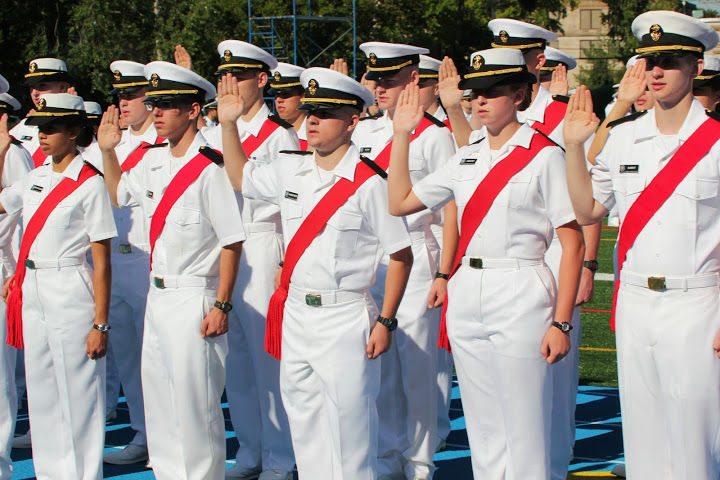
An independent accrediting agency issued a warning to the United States Merchant Marine Academy about its accreditation status, citing the school’s failure to meet five of the agency’s 14 standards.
In a report dated June 24, the Middle States Commission on Higher Education highlighted the academy’s noncompliance with its standards on financial planning, leadership and student resources.
“The academy appreciates MSCHE’s candid, thoughtful and thorough work,” said Rear Adm. James Helis, superintendent of the academy. “We are committed to the process of continued improvement to accomplish the academy’s mission.”
“I am confident that USMMA will meet the requirements and recommendations.”
The academy remains accredited while on warning, which is the least severe penalty used by the accrediting agency.
According to the report, USMMA officials are expected to submit a monitoring report by March 1 to the accrediting agency, stating the actions the school has taken to address its problems.
“The academy is committed to the process of continued improvement to accomplish the academy’s mission, and serve the nation as a leader in maritime education and a unique desirable learning institution and workplace,” an academy spokesman said.
The institution’s Sea Year, when midshipmen spend an academic year aboard a merchant marine vessel, was scrutinized by the accrediting agency.
The report said the marine academy needs to take steps “to build a climate of mutual trust and respect on campus and during the Sea Year.”
Marine academy officials suspended the program on June 15 to hold student training on acceptable conduct in regard to bullying and sexual harassment.
“In ongoing conversations between the Maritime Administration, faculty and staff and the midshipmen, some returning from their Sea Year experience have revealed episodes of improper behavior including bullying, coercion, harassment and retaliation,” the spokesman said. “While academy leadership has focused on prevention and response training and creating a leadership development program to address campus climate issues, there is still a need to ensure the safety and mutual respect for all midshipmen on vessels during Sea Year.”
Thirty-three students were expected to set sail for Sea Year before the program’s suspension.
“We are taking this action to improve the midshipman training and experience, and are making every effort to ensure an on-time graduation for any affected students,” the spokesman said.
He also said the institution’s decision to suspend the Sea Year program was not related to the school’s accreditation.
“Our work regarding Sea Year is not tied to the reaccreditation process,” the spokesman said. “Sea Year is and will remain a core element of the academy’s academic program.”
According to the report, the Middle States Commission will send a small team to the academy after it submits its monitoring report to ensure it is taking the right steps to address the problems.
The commission can take up to two years to reverse its “warning” decision.






